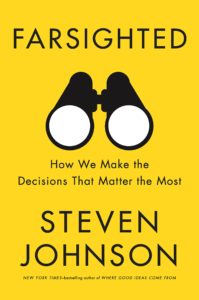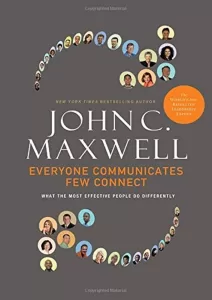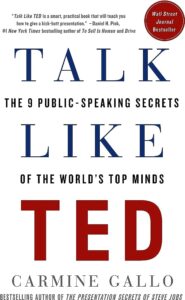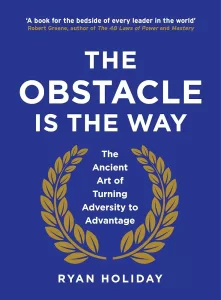Book Review: “Farsighted”
Book: Farsighted by Steven Johnson
Reviewer: Bobby Powers
My Thoughts: 8 of 10
Steven Johnson is a classic liberal arts thinker. In explaining the science of decision-making, he draws upon fields as diverse as history, science, psychology, business, and classic literature. To Johnson, everything is connected. One can use insights from George Eliot's Middlemarch to create a plan for tracking down Osama bin Laden. (Yes, he discusses both topics in the book.) Johnson's insights are surprising, holistic, and empowering.
What I Learned from the Book
Generally, humans are quite bad at making "farsighted" choices--complex decisions that will have a lasting impact. Our decision-making techniques haven't advanced much since Benjamin Franklin's pros and cons list of the 1770s. We fail to appreciate that it is a skill that can be developed with practice and better processes. Johnson's book supplies a number of tools that can help you practically make better decisions in your life.
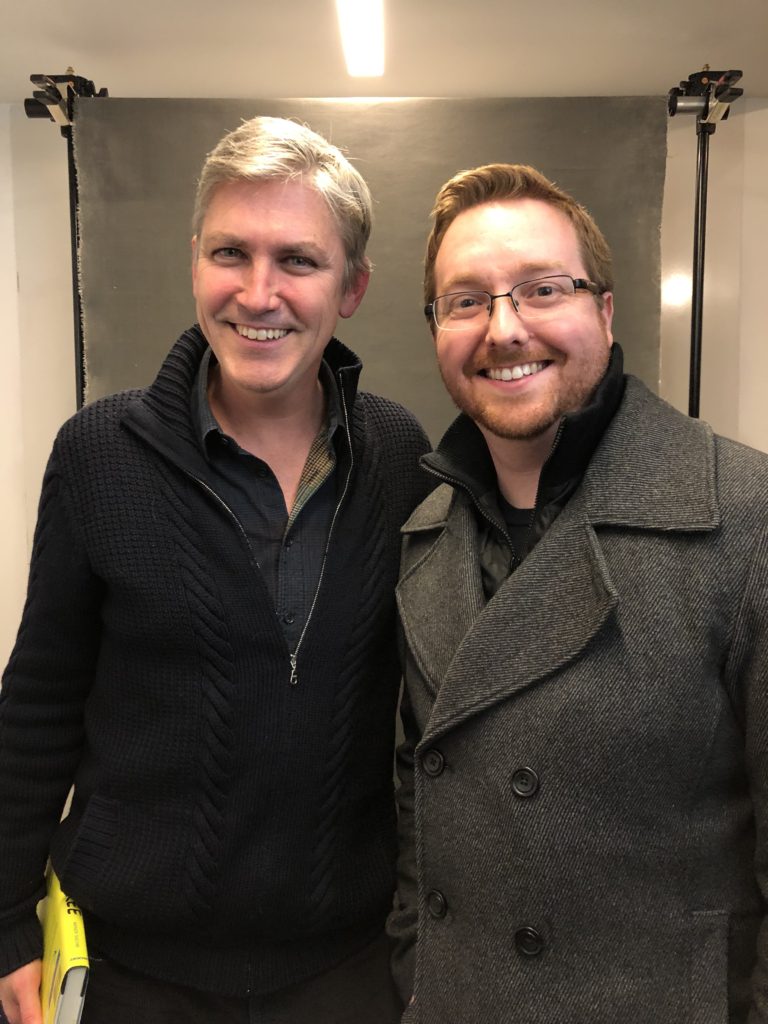
Selected Quotes and Ideas from the Book
Farsighted Choices
- "The craft of making farsighted choices--decisions that require long periods of deliberation, decisions whose consequences might last for years, if not centuries...is a strangely underappreciated skill."
- "[Y]ou will almost never see a course devoted to the art and science of decision-making, despite the fact that the ability to make informed and creative decisions is a skill that applies to every aspect of our lives: our work environments; our domestic roles as parents or family members; our civic lives as voters, activists, or elected officials; and our economic existence managing our monthly budget or planning for retirement."
Tips for Making Decisions
- Classify your decision-making process into two distinct phases: divergence and consensus.
- "In a divergent phase, the key objective is to get as many perspectives and variables on the table as possible through exploratory exercises designed to reveal new possibilities."
- "In the consensus phase, the open-ended exploration of new possibilities reverses course, and the group begins to narrow down its options, seeking agreement on the correct path."
- Choose full spectrum rather than narrowband decision-making.
- "With sound, there are two polar extremes of listening: narrowband and full spectrum. You can carve everything else out of the mix and only hear that hum, or you can listen to the whole orchestra. Decisions can be imagined in a similar way. The blizzard of decisions that you make over the course of an ordinary day are largely narrowband in nature, like choosing this brand of ketchup over that one or deciding which route to take on your morning commute. But the decisions that really matter in life, the hard choices, can't be understood on a single scale."
- Johnson explains that we are tempted to force complex, multi-variable decisions into narrowband decisions because doing so eases our mental strain.
- "Our minds naturally gravitate to narrowband interpretations, compressing the full spectrum into one dominant slice. Cognitive scientists sometimes call this anchoring. When facing a decision that involves multiple, independent variables, people have a tendency to pick one 'anchor' variable and make their decision based on that element."
- "Most of us have a powerful urge to retreat to narrowband assessments: She just looks guilty; I'm voting for the guy who will lower my taxes. But we decide better when we break out of the myopia of the single scale."
- Ensure you incorporate diverse viewpoints when making decisions.
- "Some group members are cognitively central, in the sense that their personal knowledge is also held by many other group members...By contrast, other group members are cognitively peripheral; their own information is uniquely held. What they know is known by no one else, and what they may know might be really important. For that very reason, well-functioning groups need to take advantage of cognitively peripheral people. These people are especially significant." -Cass Sunstein
- "If you don't design the decision process to expose this crucial unshared information--the technical term for it, coined by psychologists Garold Stasser and William Titus, is hidden profiles--the primary benefit of consulting with a wide range of people will be lost. In the divergent stage of a decision, the stage where you're trying to assemble the most full-spectrum map of the situation at hand, the best approach may well be a series of interviews with individuals, not a team meeting."
- "[T]he most important element is the diversity of the perspectives you assemble. The very act of diversifying the group clearly improves its decision-making abilities. The power of diversity is so strong that it appears to apply even when the diverse perspectives being added to the group have no relevant expertise to the case at hand."
- "A number of studies have shown that the addition of 'outsiders' to a homogeneous group also helps the 'insiders' come up with more nuanced and original insights on their own."
- "Homogeneous groups--whether they are united by ethnic background, gender, or some other worldview like politics--tend to come to decisions too quickly. They settle early on a most-likely scenario, and don't spend the energy to question their assumptions, since everyone at the table seems to agree with the broad outline of the interpretation."
Think you’d like this book?
Other books you may enjoy:
Other notable books by the author:
Want to become a stronger leader?
Sign up to get my exclusive
10-page guide for leaders and learners.
